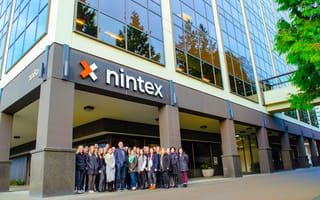In 2011, millions of Americans watched an IBM-powered machine named Watson win $77,147 dollars on Jeopardy against reigning champions Brad Rutter and Ken Jennings. According to techrepublic.com, Watson was developed with software architecture IBM called “DeepQA”, a platform that harnessed the power of machine learning algorithms to beat its opponents.
Using a similar model, engineers around the world are able to program machines to learn new information from a hierarchy of concepts, as “Deep Learning” authors Goodfellow, Bengio and Courville put it, in order to make decisions without significant guidance from humans.
Such machines are used in healthcare, e-commerce and marketing industries to do things like predict gene abnormalities and target prospects.
We spoke to Vice President of Information Technology Justin Donato about how he’s using what he’s learned from “Deep Learning” in tandem with “Humans Need Not Apply” to augment his own work at Seattle process-management and automation company Nintex.

What are the best AI books you’ve recently read?
The two best AI books I have read are “Deep Learning” by Goodfellow, Bengio and Courville and “Humans Need Not Apply” by Jerry Kaplan. I strongly recommend both books and also suggest they be considered together.
“Deep Learning” provides an introduction and reference to some of the most exciting advances in this field of engineering. This book perfectly complements Kaplan’s pragmatic perspective on how society will need to evolve to ensure we have the governance and social frameworks required to adjust to the paradigm shift that is redefining how we work.
The two best AI books I have read are “Deep Learning” by Goodfellow, Bengio and Courville and “Humans Need Not Apply” by Jerry Kaplan.’’
How have you applied the lessons you’ve learned from “Deep Learning” and “Humans Need Not Apply” in your current role?
The lessons taken from “Deep Learning” are easier to apply in my current role, as its analytical content and reference materials are invaluable in understanding how a given algorithm translates to a business outcome.
I believe the diverse approach of “Humans Need Not Apply” makes it an excellent resource when talking to a board or C-suite executive about how AI is transforming their industry and how it will re-define organizational culture.





